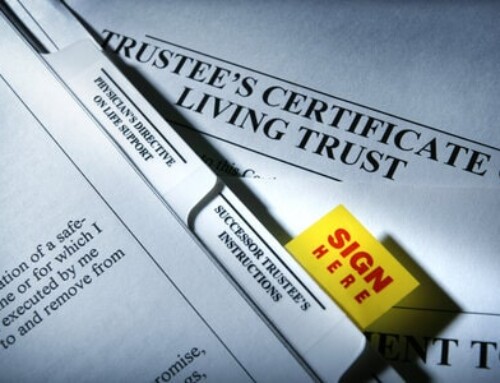 Beneficiary Deeds-Advantages and Disadvantages
Beneficiary Deeds-Advantages and Disadvantages
Beneficiary deeds are a type of estate planning document. Like any estate planning document, there are both advantages and disadvantages to using one. What works best differs from person to person, depending on their situation. In this article, we will go over the advantages and disadvantages of using a beneficiary deed.
How Beneficiary Deeds Work
A beneficiary deed, also called a transfer on death deed (TOD), is an estate planning document. It is a deed that you record with your county and it lists a beneficiary, or beneficiaries, to inherit your property at your passing. Your beneficiary receives the property simply by recording a death certificate at your passing. In Arizona, this provision was created by A.R.S. § 33-405. It lays out the structure a beneficiary deed must follow to be valid.
Advantages of Beneficiary Deeds
There are several advantages to using beneficiary deeds. The main advantage is it allows the deeded property to avoid probate. It is simple to create one and to enforce it. To make it active, you just need to record it with the county recorder. You can revoke it or update it at any time. For your beneficiaries to receive title to the property they just simply must record your death certificate with the same county recorder. With a beneficiary deed, you would still be able to take a loan on the property. Many people like beneficiary deeds because they are much more inexpensive than setting up a will or living trust.
Disadvantages of Beneficiary Deeds
Even though beneficiary deeds are simple and effective estate planning documents, lawyers for probate always highlight the several disadvantages to using them. The first comes about if there is still a mortgage on the property when you pass. While the property may pass to your beneficiaries free of probate, they still may need to file for probate to deal with clearing up the mortgage. Another disadvantage is that the deed is public information. This means anyone can look it up and see who your beneficiaries are.
There also can be monetary issues for your beneficiary. For example, inheriting the property this way may affect their Medicaid or other government program eligibility. Beneficiary deeds also do not provide bankruptcy, divorce, or creditors protection for the inheriting beneficiary. This could make your bequest pointless if the beneficiary has money issue, as the property may be seized upon inheritance.
The last disadvantage affects you, as the property owner. While a beneficiary deed will help your estate to avoid probate, it will not provide any help or protection if you become incapacitated. If you have sole ownership of the property, no one will be able to care for or sell the property for you if you have medical issues. This can be avoided with a living trust, which would allow your successor trustee to step in for you in such a situation.
Is a Beneficiary Deed Right for You?
Using beneficiary deeds as part of your estate planning portfolio has both its advantages and disadvantages. Whether or not using one is right for you will depend heavily upon your situation. You will need to weight your options and decide what type of estate plan you feel most comfortable with.
Questions? Want to schedule an appointment? Contact us by clicking here.






Leave A Comment
You must be logged in to post a comment.